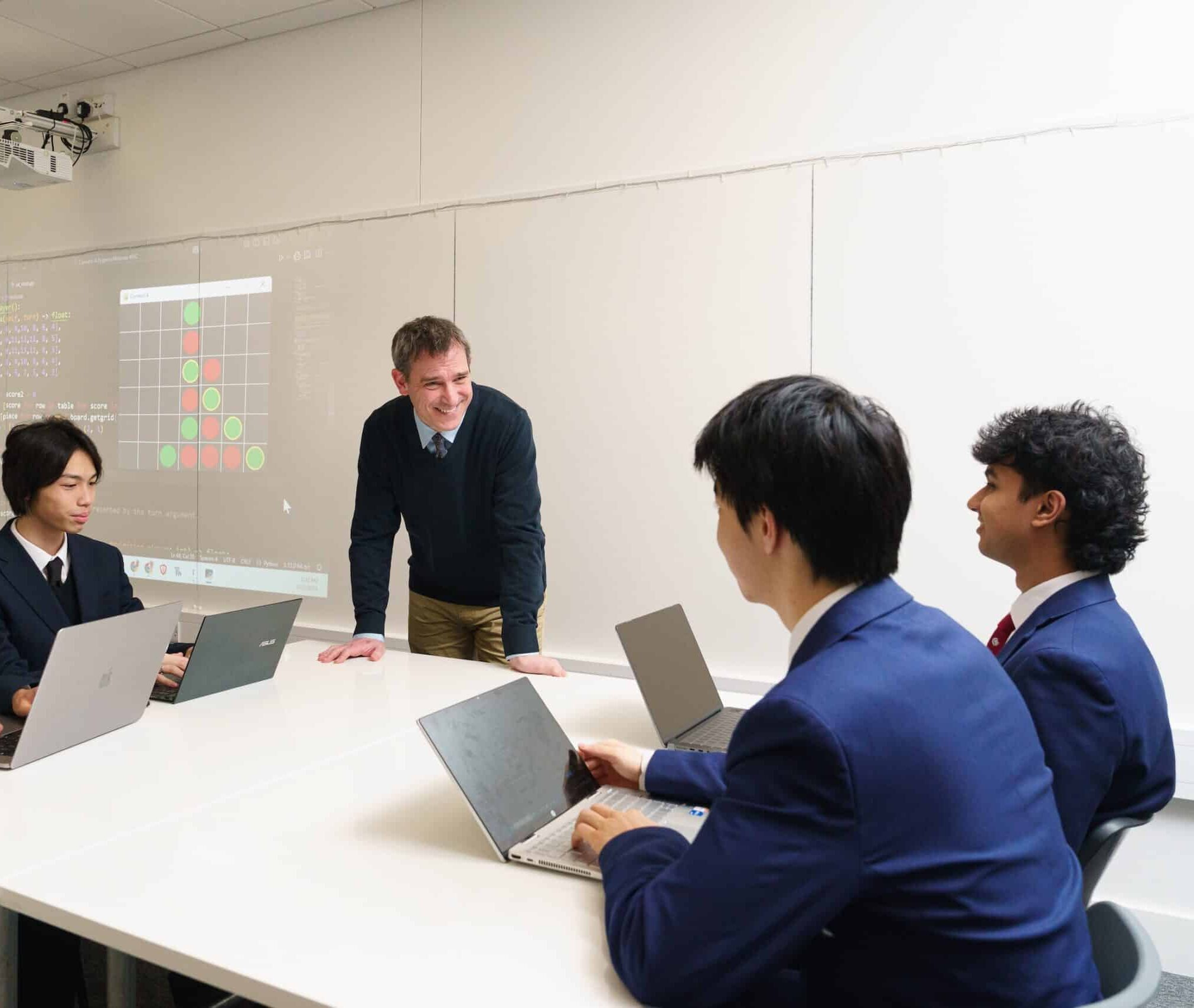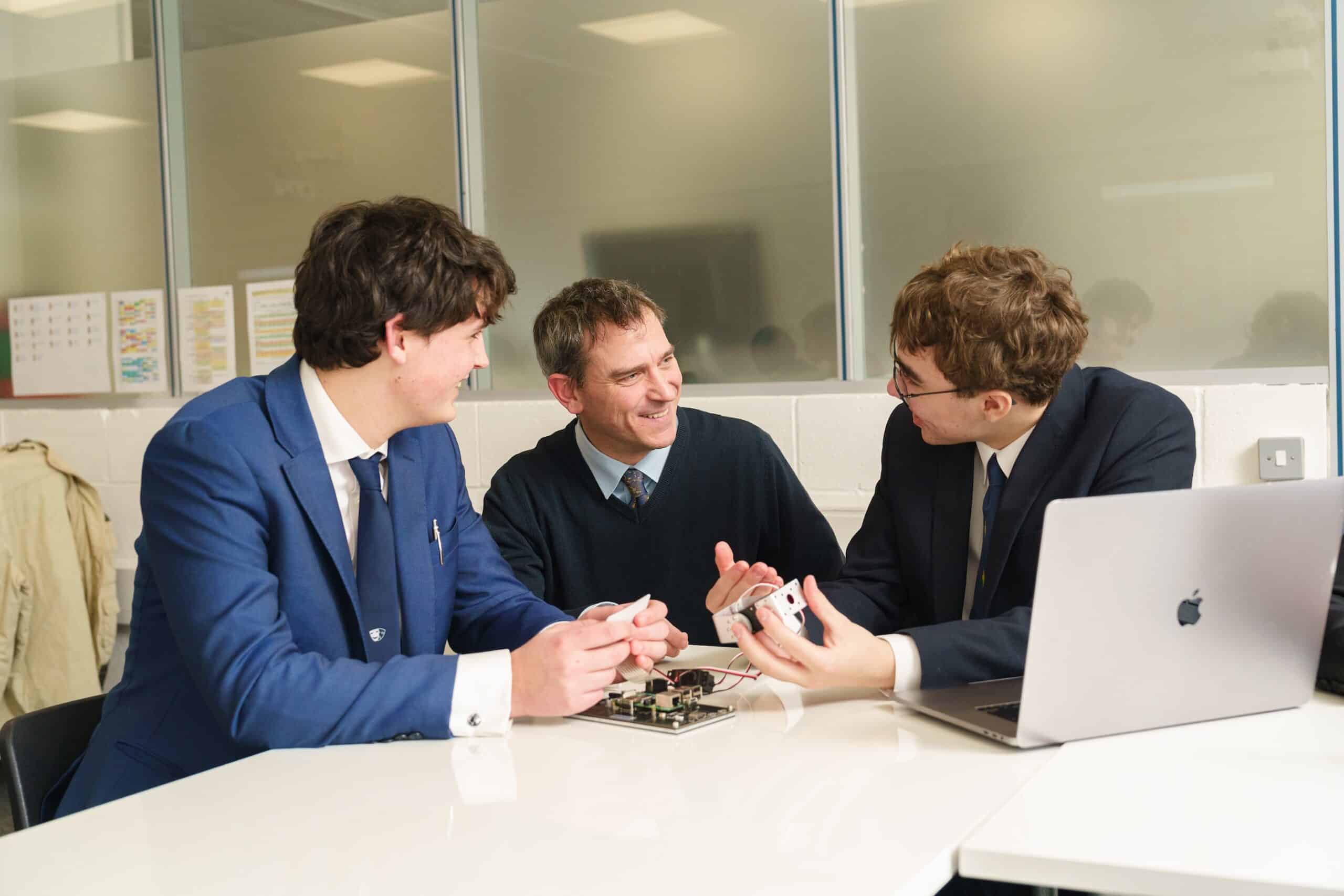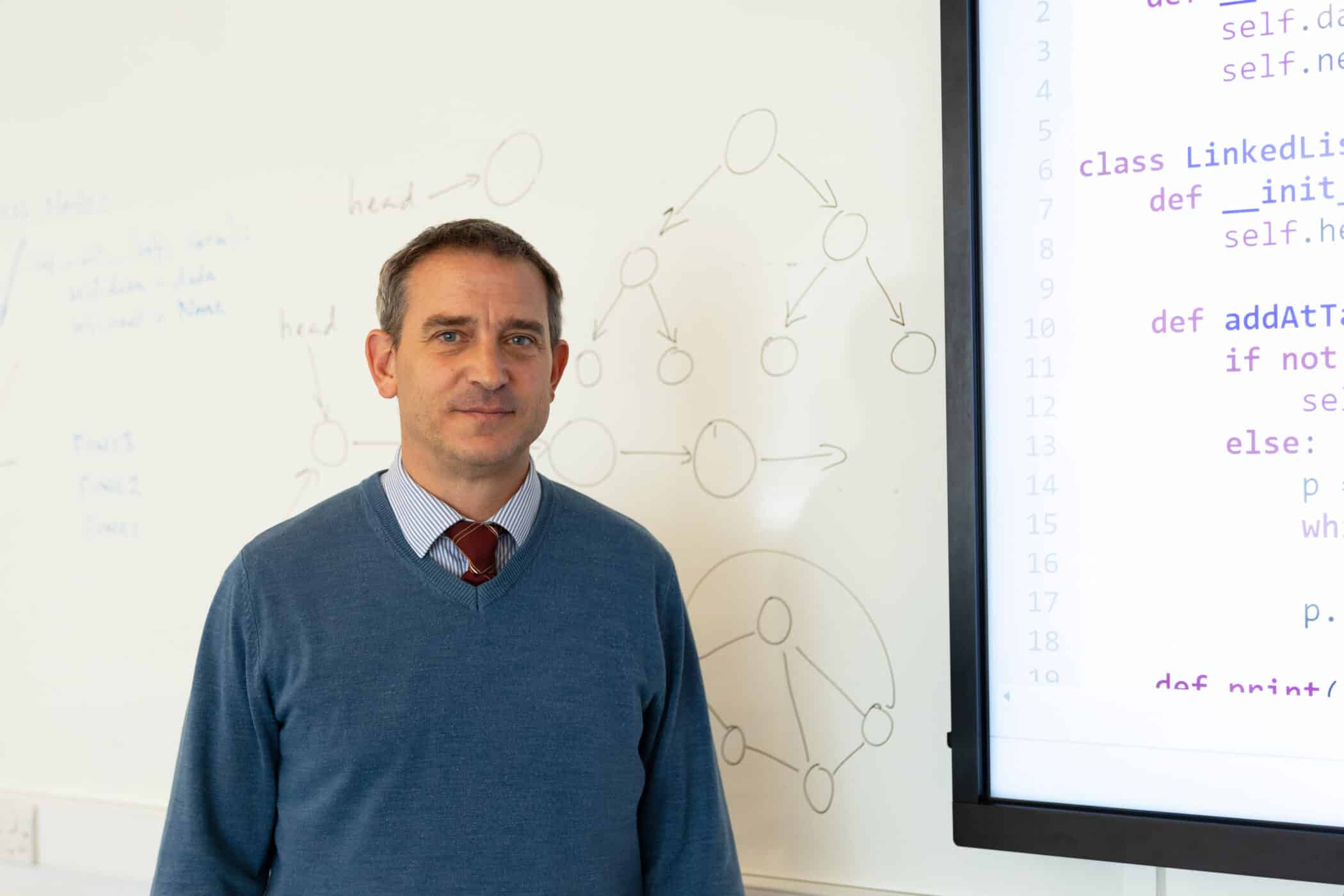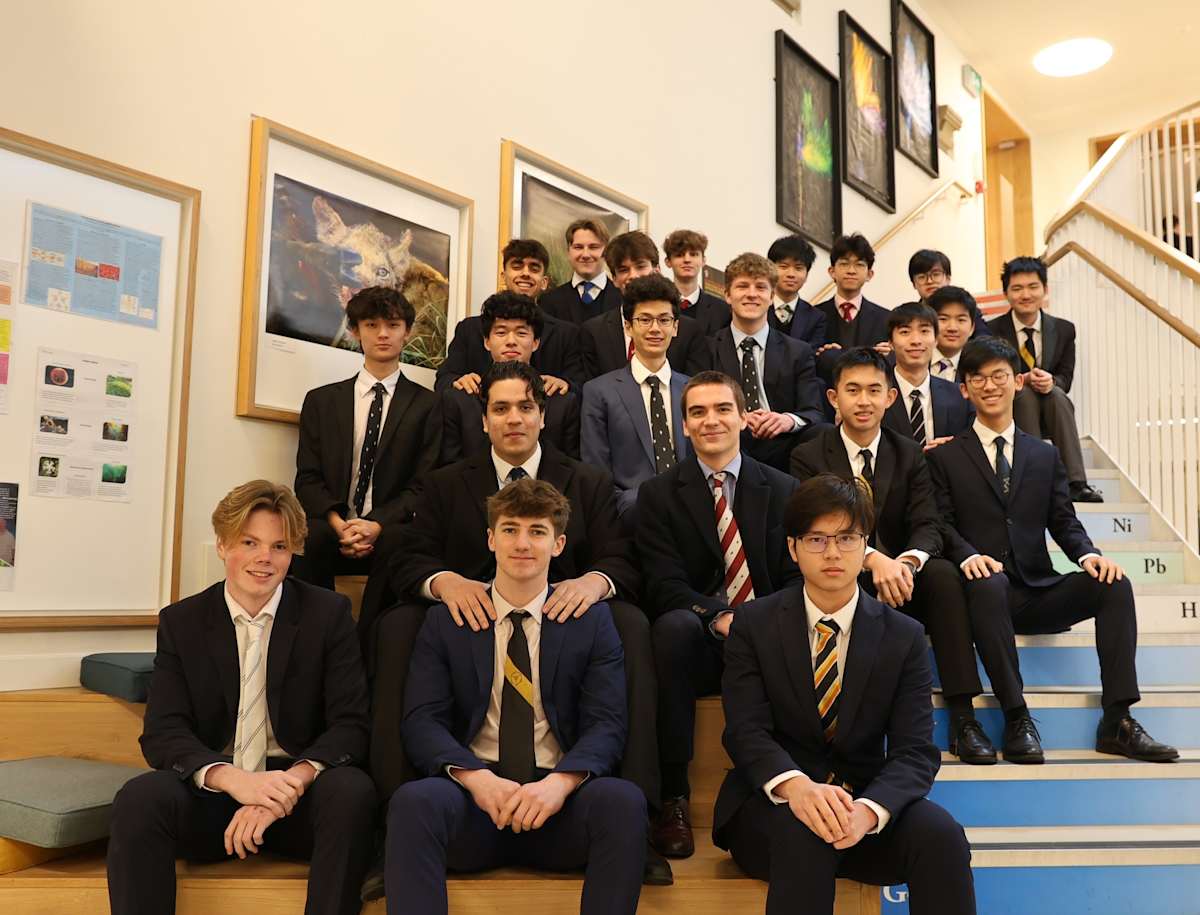Computer science is the study of information and how to represent, manipulate, transmit and store it efficiently and securely.
It develops problem-solving, logical reasoning, and creativity while equipping pupils with a technical skill set that is now considered indispensable in every field.
Digital creativity
In Year 9, we give students a broad introduction to the School’s IT ecosystem, ensuring they have the skills they need to support their learning across the curriculum and throughout their years at the School. We also introduce computational thinking through MIT’s Scratch platform and practical Python programming, giving all students a basic grounding in computing and allowing them to make informed decisions about their GCSE choices.
GCSE Computer Science (Edexcel 1CP2)
At GCSE, students follow the Edexcel 1CP2 syllabus, which builds a strong foundation in computational thinking and programming. Theory topics include data representation, computer architecture, networks, and algorithms, and programming in Python is the focus of the practical side of the course. Assessment consists of one written exam, covering theoretical concepts, and one on-screen exam, in which pupils are required to write Python code.
A Level Computer Science (AQA 7517)
A Level pupils follow the AQA 7517 syllabus, building on the topics studied at GCSE and exploring more advanced topics such as object-oriented programming, data structures, computational complexity, functional programming, and theory of computation. A key component is the Non-Examined Assessment (NEA), a programming project where pupils develop a software solution to a real-world problem. Assessment includes two written exams: one on-screen, focusing on programming, algorithms, and data structures, and the other on paper, covering theoretical concepts like databases and networking.
University entry
Our pupils regularly gain places at Oxford, Cambridge, Imperial and UCL to study Computer Science. As early as Year 9, the Computer Science Department encourages them to build a portfolio of their experience in computing, from solving challenges on Project Euler to developing their own software solutions, which they can draw on when writing their university applications. A technical skill set like this supports not only applications to computer science courses, but any course in mathematics, the sciences, engineering, and economics.
Beyond the curriculum
Computer science extends beyond the classroom through coding competitions and extracurricular clubs, and Tonbridge pupils regularly achieve success in national competitions, including Bebras, the Perse Coding Team Challenge, the British Informatics Olympiad, and the new UK Olympiad in Artificial Intelligence.
Head of Department






